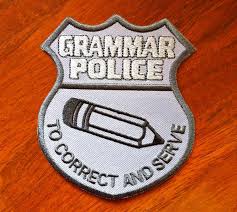
I’m something of a stickler when it comes to English grammar and usage. Whenever I see a misplaced apostrophe or the incorrect “their/they’re/there” in a sentence, I cringe a little.
So it surprised me a bit that I didn’t have a more negative reaction to Merriam-Webster’s Word of the Year: the singular “they.” Of course, in ordinary speech, for some time now people have been using the word “they” to refer to either one or more people without regard to noun-pronoun agreement. But using it in writing was always taboo.
This led to difficulties such as having to use the awkward “he/she” or “he or she” when the subject was of unspecified gender. And many people just used “he” without regard to the sexist nature of assuming that human equals male. So it’s a bit of a relief to me that style manuals will most likely be updated to allow for the singular “they.”
There’s another reason that “they” was chosen as the Word of the Year by Merriam-Webster. “They” is often the preferred pronoun for gender nonconforming individuals. So the dictionary makers are right in choosing it as a significant movement in the English language.
There will be those who object to this modern use of the word “they,” whether because they are grammar purists or because they object to the normalization of LGBTQ matters. But as Benjamin Dreyer points out in The Washington Post, “Language is here to serve those of us, all of us, who use it, and when one’s perhaps unconsidered thoughts as to what is correct run smack into the honor we owe another person, one can only hope that it’s honor that wins out.” (“Language is here to serve all of us. Merriam-Webster’s word of the year shows that,” Benjamin Dreyer, Washington Post, Dec. 16, 2019)
So if a person wants to use the singular “they” in their writing, they should definitely do it.
